A year after a life-threatening crash at the Breck Epic, 2016 Olympian Howard Grotts lines up for the Leadville Trail 100 MTB
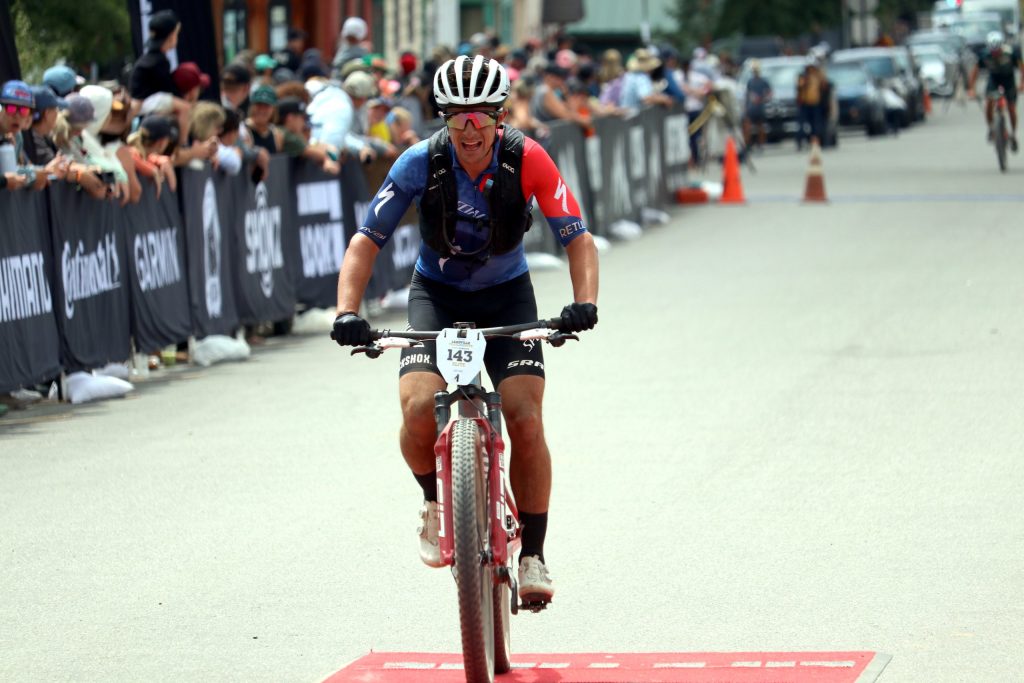
Ryan Sederquist/Vail Daily
In many ways, Howard Grott’s 2025 Leadville Trail 100 MTB race was similar to his past appearances at the iconic high-altitude event.
He camped along the St. Kevins stretch of the course the night before. The Specialized pro rode an S-Works bike over the grueling 105-mile course. He finished exhausted.
“It was hard,” the 32-year-old said after Saturday’s race. “I didn’t feel like I was going fast, but I also couldn’t go any faster.”
Grotts’ admission betrays the starkest difference between this race and any other he’s completed (usually before anyone else). Shortly after he rolled through the 6th Street finish line — almost three hours after Keegan Swenson claimed his fifth-straight win — the media mixed zone tent, where Grotts himself was surrounded by cameras and journalists after winning the race in 2017, 2018 and 2019, was starting to be disassembled. Even though he didn’t finish first, however, Saturday was a victory for the 2016 Olympian.
Two days before lining up at Leadville, Grotts paid a visit to the tree he crashed into during the 2024 Breck Epic.
“I think that was good,” he said. “Just to see what all actually happened, because I couldn’t remember.”
Comeback from the crash
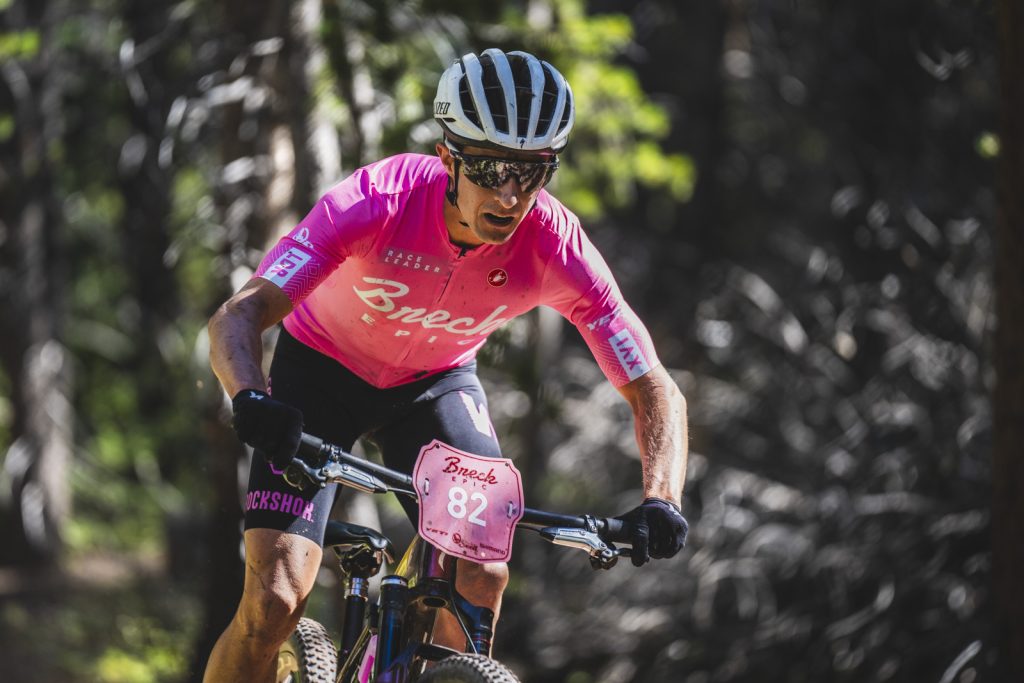
On Aug. 16, 2024, Grotts was leading the pro men’s overall at the Breck Epic when he collided with a tree a mile from the finish of the sixth and final stage. The Summit Daily reported that he “hit the tree with such force that he wrapped himself around it and was subsequently knocked unconscious.” When cyclists rode up to Grotts and discovered he was not moving, they performed life-saving techniques. First responders showed up to the scene and eventually, Grotts was airlifted to Denver. The race results were neutralized.
“I was just happy he was alive, really,” fellow Durango pro cyclist Cobe Freeburn said when he first learned of the crash.
Grotts’ injuries were extensive: broken collarbone, dislocated right ring finger, compression, transverse and teardrop fractures to numerous vertebrae; fractured first and second ribs; fractured scapula and a serious concussion.
He spent a week in the hospital, undergoing spinal fusion surgery and having a plate put in his collarbone. Three weeks after the crash, he returned to Durango, where he wore a neck collar for another six weeks. From an exercise standpoint, his comeback started with quarter-mile walks and eventually, two months after the crash, grew to an easy bike ride.
The traumatic brain injury has caused general fogginess and at times, depression. Being unable to train and race like he used to has added to the psychological battle. Throughout this past winter and early spring, Grotts’ mentality was centered around returning to an elite level. He was diligent about physical therapy and ignored the pings from his back and neck during training rides. In April, he lined up at Sea Otter Gravel, the first race of the Life Time Grand Prix — but dropped out.
“After that, I got a little mini burnt out because I was doing just not the right thing for my body,” he admitted. Since then, while he’s decreased his volume, Grotts said he’s “in a better space, mentally.”
“And (I’m) actually listening to my body,” he added. “Which isn’t easy for athletes I think always.”
“Psychologically, having an accident like that, it’s like my brain thought I was who I used to be,” Grotts continued. “And more and more I’m coming to terms with I just have a different back. The physics of how I move are different.”
Inspiring the cycling community
Chris Blevins, the current overall UCI World Cup leader in both short track and cross-country mountain biking, was milling around the mixed zone at the Leadville 100, chatting with Swenson and other elites like Cole Paton and new course-record holder Kate Courtney. The 27-year-old said he looked up to Grotts growing up in Durango.
“I think it’s just the grounded-ness that he has,” Blevins said. “He’s an incredible cyclist and has had some incredible results, but he’s stayed 100% down-to-earth and considerate of everyone around him. The love for just riding your bike — there’s a simplicity there that I think has been instilled in Durango.”
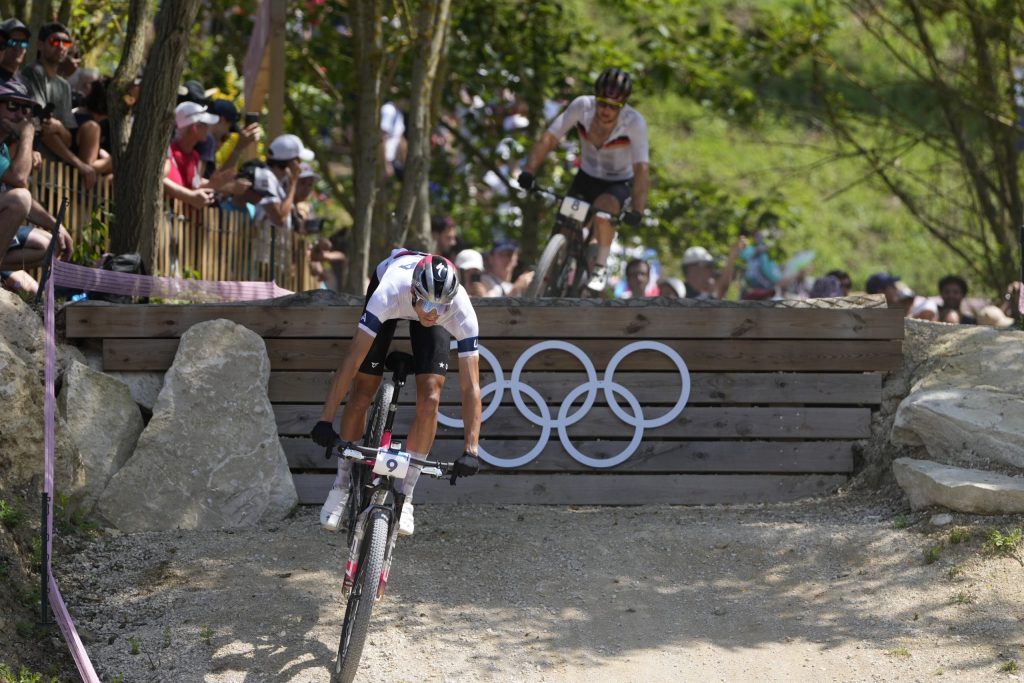
Halfway through Saturday’s race, Grotts rolled through a feed zone, applied some chain lube and held a relaxed conversation with Blevins, who ran next to him on the way out.
“I love Howard Grotts so much. He’s one of my best friends, but I mean just one of the best people I’ve come across — and I think anyone who knows him would say that,” Blevins continued. “So that was the best moment of my day.”
Freeburn also derived immense inspiration from Grotts as a kid coming through the Durango development ranks. When he started, Grotts — fresh off his Rio Olympic appearance — was a coach.
“It was so awesome to see the most genuine, nice guy, just coaching Devo,” said Freeburn. “It really inspired me (to) see what’s possible, see where the limit is.”
Freeburn this year won the GoPro Mountain Games cross-country event, a race Grotts has won seven times, including in 2023. He also took the last two titles at the Iron Horse Classic, adding his name to a long list of Durango greats — of which Grotts is near the top.
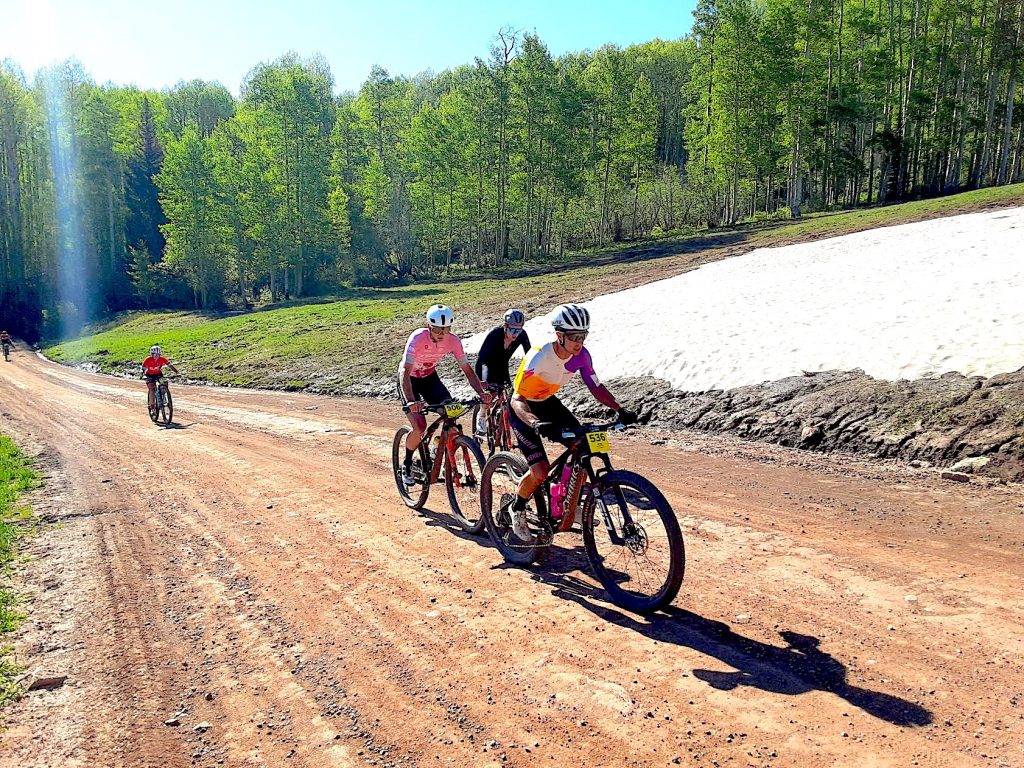
“I really admire Howard,” Freeburn said. “And having Chris and Riley (Amos) and Quinn (Simmons) and Sepp (Kuss) and everyone else — Todd (Wells), Travis (Brown), Ned (Overend) — it’s just incredible.”
Throughout the recovery process, Grotts has learned to be kinder to himself. To resist the urge to compare his old power numbers or race results. To let go.
He’s pondered pouring more energy into other areas, perhaps putting his master’s degree in math and education to use. As for whether or not he’ll ever return to his old form on the bike?
“I think the most important thing is actually do what feels good,” he said. “Yeah, for a period of my life, racing was great and it felt really good. … and I’m kind of OK with it going either direction from here.”
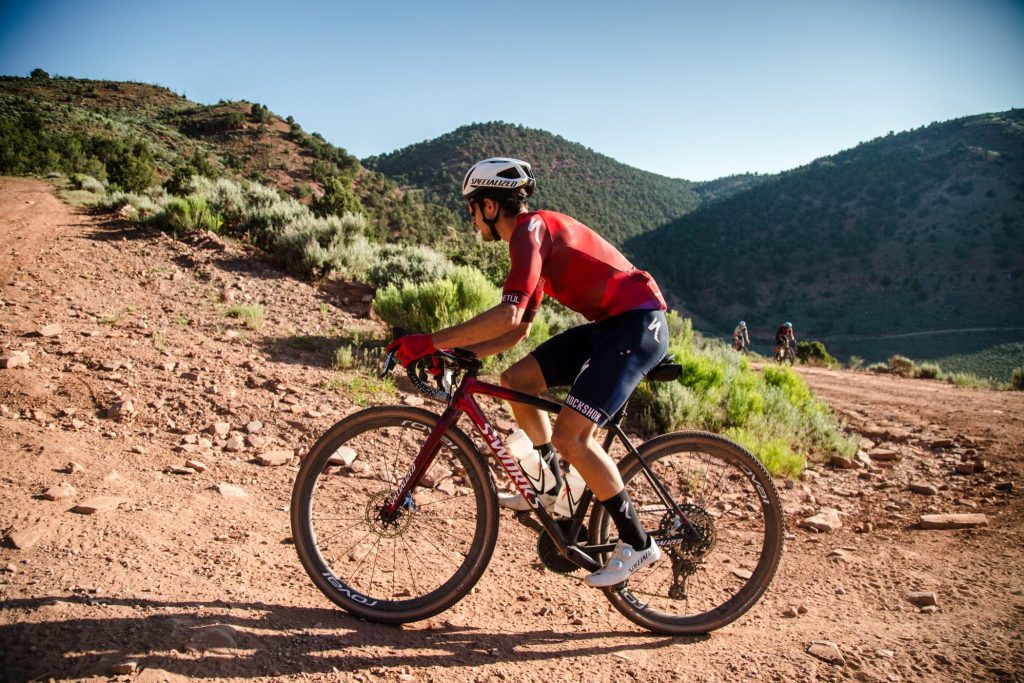
Some of Grotts competitors — many of whom he’s beaten handily in the past — waited around at the Leadville 100 finish for their friend. After he crossed in a time of 8 hours, 32 minutes and 52 seconds — well off his best mark of 6:15 — Grotts embraced his partner, Ellen Campbell, who finished in 14th overall in the elite women’s race. He snapped a picture with a fan. Then, without much fanfare, he pedaled his bike through the empty mixed zone — this time, as just a finisher.
“It just kind of again shows what is valued in this community. We all know it’s a hard effort no matter what,” he said. “Whether you’re first or last or don’t even finish, it’s just tough … it’s just supporting each other through that.”
For a hyper-competitive athlete who’s been at the top, the recovery journey has forced him to grapple with a new view. The added perspective has pushed him to continue learning — and growing.
“As we all should,” Grotts said.
While his 2025 Leadville Trail 100 MTB time may have been different, the person — Howard Grotts — was the same.
“It’s hard to find the words,” Blevins said. “He’s such a genuine guy through and through and to see him come back the way he has from the injury — he’s just retained his Howard-ness.”









